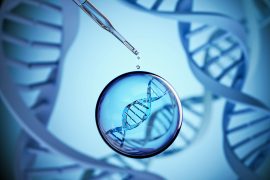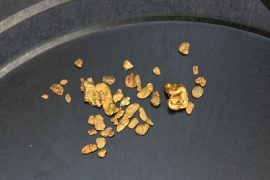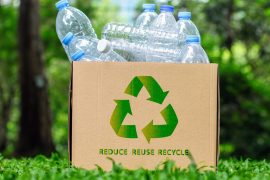
New catalyst could change how we recycle plastic forever
Every time we toss out a milk jug, salad dressing bottle, or plastic bag, we add to a recycling problem that most of us don’t even realize exists.
These common plastics – used once, then thrown away – are made from polyolefins. They’re everywhere. And they’re nearly impossible to recycle without a whole lot of effort, sorting, and energy.
But now, a team of chemists may have found a way to solve this recycling problem – and it starts with a little help from nickel.
The trouble with plastic recycling
Most plastic recycling efforts hit a brick wall the moment different types of plastics mix. Polyolefins – including polyethylene and polypropylene – make up the bulk of our daily plastic use such as shampoo bottles, snack wrappers, and juice cartons.
All of that adds up to over 220 million tons every year across the globe. However, less than 10% of polyolefin waste ever gets recycled. Often, it’s closer to one percent. These plastics are built to last, and their chemical structure makes them stubborn.
The carbon-carbon bonds that hold polyolefins together are incredibly tough to break. That’s why they stick around in landfills – and in the environment – for decades, eventually breaking down into harmful microplastics.
To recycle polyolefins, every single piece must be sorted by type. Even a small mistake – a juice cap in the salad dressing bin – can ruin a whole batch. Food residue, other materials, or even a different type of plastic can send everything straight to the landfill.
A smarter way to break it all down
This is where the new discovery comes in. Researchers at Northwestern University have created a catalyst – a substance that speeds up a chemical reaction – that targets polyolefins and breaks them down cleanly and efficiently.
The catalyst uses nickel – a metal that’s common, cheap, and easily accessible. Until now, many similar processes depended on rare and expensive metals like platinum or palladium. But there’s simply not enough of those to handle the plastic problem at the scale we need.
Instead of heating plastics to extreme temperatures (some methods go as high as 1,300°F), this new process uses a single-site nickel catalyst and hydrogen gas to break the plastics down into something useful – like oils, waxes, and fuels.
These byproducts can be turned into lubricants, candles, or other valuable products. So it’s not just about cleaning up waste. It’s about creating something better from it.
Recycling plastic with precision
The key to this discovery is precision. While other nickel-based catalysts act like hammers, smashing everything without control, this one works more like a scalpel. It targets specific bonds inside the plastic structure.
In other words, the catalyst can distinguish between different types of polyolefins – even when they’re all mixed together – and break them down selectively.
“Compared to other nickel-based catalysts, our process uses a single-site catalyst that operates at a temperature 100 degrees lower and at half the hydrogen gas pressure,” said Yosi Kratish, one of the researchers.
“We also use 10 times less catalyst loading, and our activity is 10 times greater. So, we are winning across all categories.”
Overcoming the biggest obstacles
One of the biggest obstacles in recycling mixed plastics is polyvinyl chloride (PVC). It’s used in pipes, flooring, and medical equipment – and when heated, it releases hydrogen chloride gas. That gas destroys most catalysts and brings recycling to a halt.
But this new catalyst didn’t just survive exposure to PVC. It actually worked better with it.
“Adding PVC to a recycling mixture has always been forbidden,” Kratish said. “But apparently, it makes our process even better. It’s definitely not something anybody expected.”
Even when PVC made up 25% of the plastic mixture, the catalyst kept working – and even improved. That’s a first.
A shortcut for plastic recycling
The idea of skipping the sorting stage is huge. If industries can simply dump all their mixed polyolefin waste into one process and get valuable outputs in return – without the sorting, energy waste, or the risk of failure – that could change everything.
“One of the biggest hurdles in plastic recycling has always been the necessity of meticulously sorting plastic waste by type,” said Tobin Marks, the senior author of the study.
“Our new catalyst could bypass this costly and labor-intensive step for common polyolefin plastics, making recycling more efficient, practical and economically viable than current strategies.”
That’s good news for the environment, but also for the people trying to fix the plastic problem at scale.
Basically, this could make the impossible – or at least the brutally inconvenient – a whole lot simpler. And in the world of plastic waste, simple is exactly what we need.
The full study was published in the journal Nature Chemistry.
—–
Like what you read? Subscribe to our newsletter for engaging articles, exclusive content, and the latest updates.
Check us out on EarthSnap, a free app brought to you by Eric Ralls and Earth.com.
—–
News coming your way













